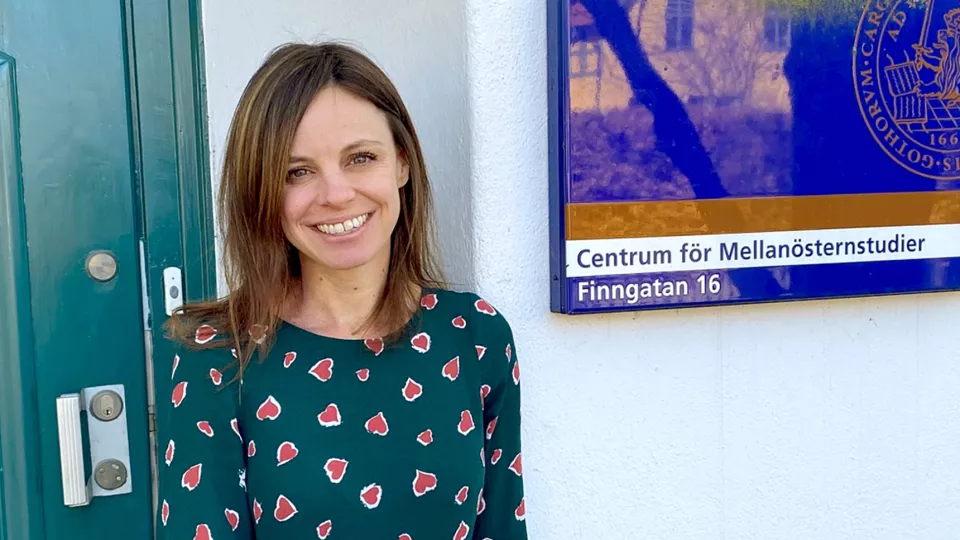Sarah Anne Rennick, political scientist and researcher at the Centre for Middle Eastern studies at Lund University, has monitored the social movements in the area for a long time:
– The revolution did bring a general approval of democracy but not better living conditions. Since the political system failed to show good governance and engage the young, we now see a silent acceptance of the new president's soft coup and recasting of parliament, which greatly diminished its role.
The Political Transitions in Tunisia
Since Tunisia became independent in 1956 the political system featured a functionally single political party and was led by President Zine al-Abidine Ben Ali until 2011 when the uprising ended this regime. Elections were held in 2014 and a new constitution was put in place and the compromises between different interests was generally seen as a working democracy.
After 2011, there was an eruption of civic space, political parties, associations, and social movements accompanying the democratic transition in innovative ways. The youth got involved but mainly those who live in the coastal region, the richer areas, and to less extent the youth in the marginalised cities, in the countryside.
Sara Anne Rennick has focussed her research on the latter group, their political grievances, and their manners of political socialisation to democracy. Interviews with almost 120 young people in twelve focus groups from cities and countryside and from both the Generation Z and Millennials were carried out, with the aim to learn how differently they experienced the events of the democratic uprising and the effects it has had on society.
“We expected that there would be a big discrepancy between the two age groups having lived through these events either as young adults or as small children, but to our surprise this was not the case”, says Sarah Anne Rennick.
Political Socialisation
To understand these changes in society and in the mindset of different generations, Sarah Anne Rennick studies how political socialisation takes place. It can be top-down through the education system or bottom-up through family, friends, and civil society organisations. In Tunisia, the events and effects of the Arab Spring has not become part of teachings at school. It has not either been memorialised in society, no special celebrations or raised statues.
“In education, the democratic wave was viewed as a process that should be given time - to wait and see how to include it in the curricula”, explains Sarah Anne Rennick and continues: “To ensure that young people were involved in politics and have representation, a system of youth quotas was introduced.”
In general, there is now a surge for more efficiency, security, and morality in society
However, the quota system was not transparent and young people were often co-opted to fill the lists rather than having made the choice themselves to get engaged. In effect, the quotas could be seen as “youth washing”, and the nominees were often linked to families who already held prominent positions.
“Once the young persons were in the system, there were several gate-keeping practices, so their actual ability to influence decision-making was limited. Still, it has had an impact – the young representatives have seen the value of being in politics in a different way than before”, says Sarah Anne Rennick.
Political Grievances Among the Young
There was great hope that the overthrowing of the former Ben Ali regime would provide both freedom and bread. Instead, the economy has been struggling and the political system has been ineffective, on both national and local levels. The richer areas, along the coast, has benefited from the democratic dividends whereas the people in more marginalised areas, in the inlands have not.
There has been unrest, more criminalisation, and concerns about the health system – even before the pandemic. These are some of the issues that have contributed to a sense of injustice and demoralisation along with views that are anti-system and anti-institutional.
“In general, there is now a surge for more efficiency, security, and morality in society”, says Sarah Anne Rennick.
Tunisia: A Critical Case for Democracy
In 2021, a new president, Kais Saied was elected. He was regarded as “clean” and able to restore respect and righteousness. In the summer of 2022, he dissolved the parliament and changed the constitution to a more authoritarian leadership.
What will this soft coup lead to? At present, the situation is not good in Tunisia, but there is some optimism in the answers that Sarah Anne Rennick has sampled. Maybe it is because youth in general tend to be optimistic, but maybe it is also the only choice - to hope for a long-term change and faith in making better choices as the awareness grows.
“We asked: What do you expect from the state? The answer was “nothing”, says Sarah Anne Rennick and elaborates: “There is a strong sense of personal responsibility and duty. A majority do not want to leave Tunisia, they want a good life in their own country”.
In many ways, Sarah Anne Rennick thinks that Tunisia is a perfect study lab for political transition. Those who have been more involved with organisations and institutions are more positive. The political grievances that she studies are the subjective experiences among the young, not objective measured shortcomings. The young still value democracy higher than non-democracy, even if it means less economic prosperity. More jobs are just not enough, they want more.


